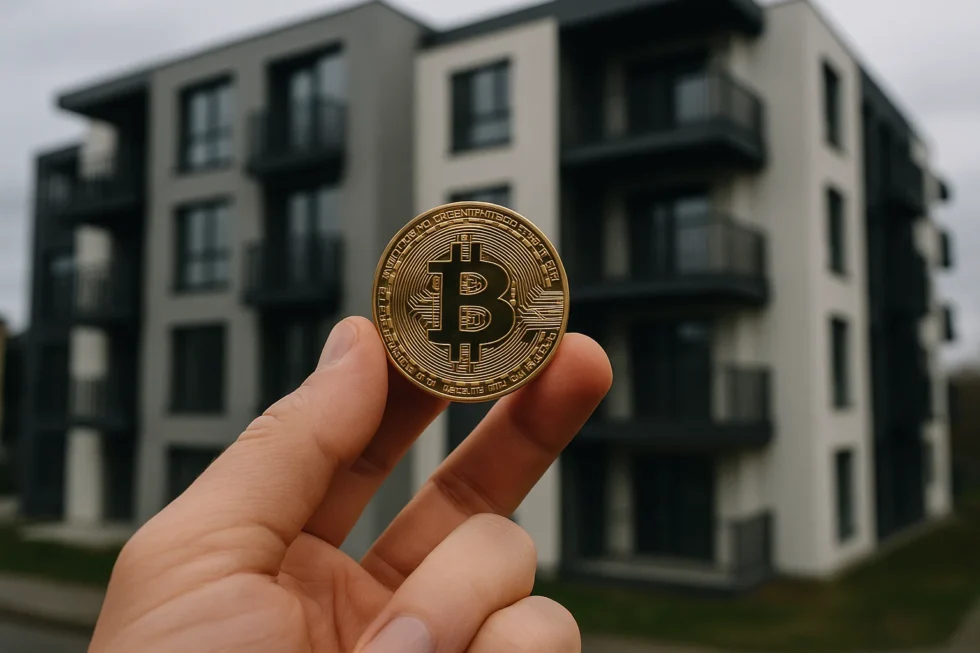Real estate tokenisation is emerging as one of the most disruptive financial technologies of the decade. By converting bricks and mortar into tradeable blockchain units, investors can buy fractions of apartments or houses with cryptocurrencies. The approach promises lower barriers, faster transactions, and a more democratic market. Yet it also carries regulatory uncertainty and volatility. About this groundbreaking trend reports G.business, citing Renewz.de.
What is real estate tokenisation
At its core, tokenisation means splitting property ownership into digital tokens recorded on a blockchain. Each token corresponds to a fraction of the asset and can be sold or traded much like a share on the stock exchange. Smart contracts – self-executing agreements embedded in the blockchain – secure and automate the process, reducing the role of middlemen such as notaries or brokers. The result is a more transparent and efficient system that connects investors directly with real estate assets.
From crypto to concrete: how the process works
The journey begins with a platform specialising in tokenised property. Investors must pass know-your-customer (KYC) and anti-money-laundering (AML) checks before browsing available offerings. Once verified, they can purchase tokens using Bitcoin, Ethereum or even euros and dollars. These tokens are stored in a digital wallet and represent ownership rights. Rental yields or sales proceeds are later distributed via the same platform, ensuring a streamlined experience.

Key actors in the process
| Party | Function |
|---|---|
| Issuer | Owner who tokenises the property and ensures compliance |
| Platform | Marketplace providing the technical and legal framework |
| Investor | Purchaser holding tokens in a digital wallet |
| Land registry | Public authority recording the legal ownership |
The coordination between issuers, platforms, investors and registries is crucial to maintain legality and security.
Advantages of tokenisation
- Fractional ownership: investors can buy just a share, not the whole property.
- Liquidity: tokens are tradeable within minutes.
- Global access: anyone with internet can invest across borders.
- Lower transaction costs: notary and agent fees largely eliminated.
- Transparency: every deal is recorded immutably on the blockchain.
This democratises an asset class once reserved for the wealthy and opens property markets to retail investors worldwide.
The risks investors must face
The model is not without dangers. The legal framework remains unclear in many jurisdictions, creating uncertainty. Cryptocurrencies are notoriously volatile, magnifying exposure. Some tokens may prove illiquid if demand is limited. Cyberattacks also threaten blockchain platforms, raising security concerns. These risks mean tokenisation remains a speculative frontier rather than a mainstream solution.
A disruptive technology still in its infancy
Real estate tokenisation may one day redefine ownership and investment. It lowers entry barriers, brings efficiency and global reach, and could democratise wealth creation. Yet it also depends on regulation, market adoption and technological resilience. For now, the concept stands at the threshold of a revolution – one that could change how we think about property forever.
Legal, tax and regulatory challenges
Beyond market volatility and cyber risks, investors must also confront unresolved legal and fiscal issues. In many jurisdictions, it remains unclear whether property tokens are classified as securities, real estate shares or a new hybrid asset class. This affects how they are taxed – capital gains, income from rents, or even VAT may apply, depending on the structure. Regulators are still drafting frameworks, which means rules can change quickly and retroactively impact investors. Moreover, disputes over ownership rights may still require traditional courts and registries, limiting the promise of full automation. These uncertainties underline that tokenisation is not a legal shortcut but an emerging model in need of robust oversight.
Latest events in politics and global economy at Cryptonews – practical tips on how to act and invest. Read: Global Crypto Exchange Ranking 2025: Detailed Insights
